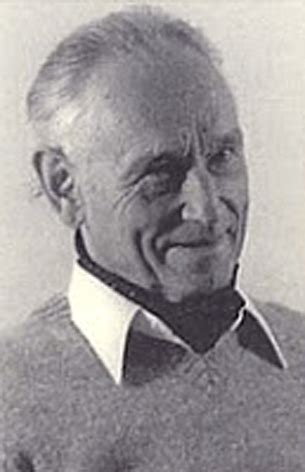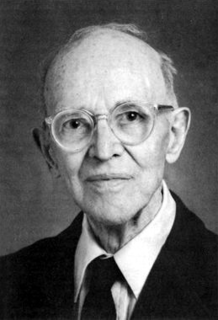A Quote by Joseph Priestley
When we say there is a GOD, we mean that there is an intelligent designing cause of what we see in the world around us, and a being who was himself uncaused.
Related Quotes
As many critics of religion have pointed out, the notion of a creator poses an immediate problem of an infinite regress. If God created the universe, what created God? To say that God, by definition, is uncreated simply begs the question. Any being capable of creating a complex world promises to be very complex himself. As the biologist Richard Dawkins has observed repeatedly, the only natural process we know of that could produce a being capable of designing things is evolution.
God thus excludes the world; he is only its cause; in no sense is he effect, of himself or anything else. Pantheism (better, "pandeism," for again it is not really the theos that is described) means that God is the integral totality of ordinary cause-effects, and that there, is no super-cause independent of ordinary causes and effects.
It's the fact that your body and your personality are not God. God is you. But you can't say you are God just as the ocean is all the waves, but you can't say one wave is the ocean. And so you manifest God in a way that you don't understand. Man himself is the image of God, but he doesn't see that image in himself. And you need to meditate, and there will come your answer, not looking in the mirror.
God himself, finding he was in the midst of spirits and glory, because he was more intelligent, saw proper to institute laws whereby the rest could have a privilege to advance like himself. The relationship we have with God places us in a situation to advance in knowledge. He has power to institute laws to instruct the weaker intelligences, that they may be exalted with Himself, so that they might have one glory upon another, and all that knowledge, power, glory, and intelligence, which is requisite in order to save them in the world of spirits. (King Follett Discourse)
The law of giving and receiving is fundamental, and relates just as much to God as it does to us. As we go through the door of giving ourselves to God in worship we find that God comes through that same door and gives Himself to us. God's insistence that we worship Him is not really a demand at all but an offer-an offer to share Himself with us. When God asks us to worship Him, He is asking us to fulfill the deepest longing in Himself, which is His passionate desire to give Himself to us. It is what Martin Luther called "the joyful exchange."
Atheists themselves used to be very comfortable in maintaining that the universe is eternal and uncaused. The problem is that they can no longer hold that position because modern evidence that the universe started with the Big Bang. So they can't legitimately object when I make the same claim about God - he is eternal and he is uncaused.
I — I mean," Kate stumbled on, "that with us there is a time past and time present, and time future, and with your gods perhaps there is time forever; but God in Himself has the whole of it, all times at once. It would be true to say that He came into our world and died here, in a time and a place; but it would also be true to say that in His eternity it is always That Place and That Time — here — and at this moment — and the power He had then, He can give to us now, as much as He did to those who saw and touched Him when He was alive on the earth.





































